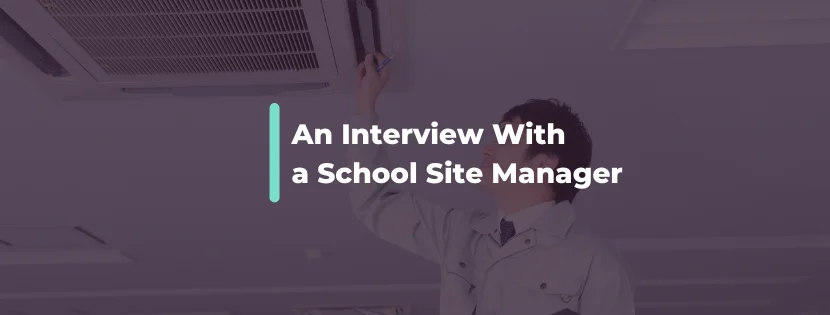Leading Through Change: An Interview with a Local Authority Leader on SEND Reform
21 Oct, 20251-2 minutes
In this blog, you will learn:
- What makes an effective leader in local authority SEND education.
- The current challenges and future hopes for SEND provision for all children and young people.
- Where the latest local authority SEND jobs are and how to apply for them.
As demand for SEND support continues to rise and local authorities navigate increasing pressures on resources, effective leadership has never been more important. To discover more and hear first hand from a professional in the thick of systemic demand, we’ve been speaking to a leader in local authority SEND education.
This senior leader reflects on her career journey and the evolving challenges within the system. She also works as a local area SEND Ofsted Inspector, which provides her with candid insight into the realities of leading change in the rapidly shifting educational landscape.
Throughout this interview with a local authority leader, discover the qualities that make a strategic leader in SEND and help shape inclusive practice.
Tell us about your career journey so far and how it led to your role as a leader in local authority SEND education
I began my career as a primary school Teacher and soon developed an interest in Special Educational Needs and Disabilities (SEND), as well as a passion for Early Years pedagogy. This led me to leadership positions in both SEND and mainstream schools, where I specialised in the Early Years Foundation Stage (EYFS).
Motivated by a desire to make a difference on a wider scale, I moved into local authority work, managing advisory teaching teams. I found the diversity of this environment extremely rewarding and took on roles with increasing responsibility and a broader scope.
Working within SEND services is something I find deeply fulfilling, as no two days are ever the same. One day might be filled with online meetings focused on strategic initiatives, while another could involve visiting schools to see their excellent practice first-hand or working alongside advisory teaching teams to support families and students.
Although the role presents many challenges, the opportunity to help children and young people, as well as their families, navigate their journeys makes the work immensely worthwhile.
What makes a great leader in local authority SEND education?
I believe great leaders in local authority SEND must be deeply passionate about making education more inclusive and have an unwavering commitment to ensuring that every child and young person has an equal opportunity to enjoy a happy and successful adulthood.
Working in this field can be extremely challenging and it is that passion and commitment which helps to overcome obstacles. Leaders also need to be both resilient and empathetic, recognising and understanding the reasons behind the challenging situations they encounter, whether from residents or professionals.
Above all, I believe it is fundamentally important to be kind; kind to colleagues, other professionals and the families and young people we work with. Everyone is working hard with the best of intentions and tensions inevitably arise, but these can be managed far more effectively when approached with kindness.
It is equally important to be kind to yourself; the days can be long and outcomes may not always be as hoped, but it is vital to acknowledge that you are doing your best.
Being an effective leader also means being a great team member who thrives on collaboration. It is a privilege to work with professionals from a wide range of disciplines, as well as with young people and their families. Each brings their own expertise and perspective and it is essential to listen, adapt and ensure that everyone is working towards the same outcomes to achieve the best possible results.
A strong leader must also be able to see the bigger picture which can be difficult at times, particularly when the instinct is to do the very best for every individual child. However, it is crucial to evaluate the resources available and ensure they are used as effectively as possible to benefit the greatest number of children and families.
How has SEND provision changed over the past 12 months and where do you see it heading?
Over the past 12 months, I have observed an increasing strain on the SEND system, a trend that is reflected nationally. The number of Education, Health and Care Plans (EHCPs) has risen exponentially, accompanied by a growing demand for specialist placements, which are becoming increasingly scarce.
At the same time, there are higher numbers of younger children who require a highly adapted curriculum within mainstream schools in order to access learning effectively.
There has also been a noticeable rise in children and young people presenting with Social, Emotional and Mental Health (SEMH) needs. In particular, many young people in Year 9 and above are struggling to attend school due to significant anxiety, often linked to unmet, undiagnosed or misdiagnosed differences.
More children and young people are accessing alternative provision because mainstream and even specialist settings are not always able to meet their learning needs. This is reflected in the rising number of suspensions and exclusions which are occurring at an earlier age.
Local authorities and schools are facing significant funding pressures, which makes it increasingly difficult to adapt learning and environments to meet the growing diversity of needs in schools. This is despite the creativity and resourcefulness of many schools in their approach to teaching and learning.
In addition, there are not enough specialist professionals such as Speech and Language Therapists, mental health practitioners and Occupational Therapists to meet the increasing level of demand.
Everyone involved is working harder than ever to make things as effective as possible under challenging circumstances. However, the pressure can sometimes result in people not fully hearing or understanding one another, which can create tension and exacerbate existing challenges.
What reforms do you hope to see in local authority SEND education?
I hope to see a better, more effective way of delivering learning that is appropriate to the needs of all children and young people. This should include a curriculum that reflects today’s society; one which recognises the changes in how we interact, the skills we need now and in the future, as well as the importance of supporting positive mental health.
Such a curriculum should encourage children to play, enjoy learning and develop practical and vocational skills, while valuing the full range of their talents, skills and interests so that they feel confident, motivated and appreciated as learners.
Crucially, appropriate funding must be in place to enable the delivery of this curriculum and to create environments that meet the needs of children requiring adapted learning. There should also be greater flexibility and autonomy to provide school places that meet needs locally, so that pupils can remain within their communities and avoid long journeys to access suitable provision.
Alongside this, there must be stronger accountability for inclusive practice in all schools, ensuring that pupils receive an equal offer wherever they attend. This should include robust systems for monitoring and holding schools to account, but also for recognising and sharing exemplary practice nationwide.
Tighter regulation of non-school alternative provision is also essential to ensure that the most vulnerable pupils, who are often placed in these settings are guaranteed a high-quality education that supports their progression to the next stage of learning or life.
In addition, funding is needed to redevelop the universal and early intervention services which have been cut or severely reduced, so families receive support at the earliest possible point, reducing the need for higher levels of intervention later on. It is equally important to acknowledge and support the third sector and community groups which are currently filling many of the gaps left by these missing early intervention services.
Finally, there must be greater focus, support and recognition for SEN Support level provision to ensure that appropriate help is available earlier, preventing escalation to an Education, Health and Care Plan wherever possible.
How do you keep up-to-date with changes in the SEND industry?
I keep up to date with developments in the SEND sector through a variety of channels. LinkedIn is a particularly valuable tool, as connecting with others in the field ensures a steady flow of relevant and up-to-date content. It also provides an excellent starting point for research and for becoming aware of upcoming changes.
In addition, I subscribe to notifications from the Department for Education so that I am promptly informed of any changes to, or new releases of, policies and guidance.
To stay abreast of current research, I also attend conferences and networking events at both regional and national levels, through local partnerships and larger organisations. Informal conversations with colleagues are another important source of knowledge, as they not only possess extensive expertise in SEND and inclusion but also maintain wide professional networks that help to disseminate new information.
Finally, my role as an Ofsted Inspector for Area SEND provides a unique opportunity to gain insight into innovative practice across different local areas, as well as access to the extensive training resources provided by Ofsted. This combination of formal and informal learning helps me to maintain a comprehensive and current understanding of the sector.
What do you find most fulfilling about your role?
In my current role, I am most fulfilled by witnessing the impact that my teams have on the children, young people and families we support.
My colleagues are exceptionally dedicated and passionate about their work, tirelessly seeking creative ways to strengthen inclusion, improve outcomes and provide meaningful support to families.
When a project, piece of advisory work or training produces a positive result, it is wonderful to see not only the pride my colleagues take in their contribution but also the tangible difference it makes to children, young people, their Teachers and their families.
Can you share a moment in your role that felt particularly rewarding?
It is difficult to single out one example, as there have been so many inspiring outcomes. Teachers frequently report feeling more empowered and confident to support their pupils following training and guidance from the teams.
Schools have successfully established internal alternative provision as a result of our advice. Young people from the Deaf Resourced Provisions have gone on to attend university. Pupils on the edge of exclusion have been successfully reintegrated through collaborative working across professionals and services.
Programmes written by the teams have been implemented in settings, producing positive effects for individual children. I feel genuinely privileged to witness so many of these remarkable moments and to be part of a team achieving such meaningful impact.
Can you describe a time where you faced a challenging situation in your SEND career and how you resolved it?
The situation I find most challenging is not a single event but an ongoing aspect of my role. Managing parental expectations sensitively while balancing the need to allocate resources fairly across all children and young people in an area is difficult.
As a parent myself, I understand the instinct to do everything possible to secure the best support for your own child, which makes it particularly difficult to say no or deliver a message that a parent may find disappointing or disagree with.
However, as a leader within a local authority, I have a responsibility to consider the needs of all children and young people in the area and to ensure that resources are distributed as equitably as possible. This can be especially challenging when it feels as though I am unable to provide as much support as I would like.
Navigating this balance requires empathy, clear communication and a focus on fairness, even when the conversations are difficult.
What's the most valuable lesson you’ve learnt in your career so far?
The most valuable lesson I have learned so far is that ideas, projects and initiatives are far stronger when they are developed collaboratively by professionals from a range of disciplines. While I have always worked hard to listen to and take account of other people’s ideas and opinions, I did not fully appreciate the power of co-production until I began working within local authorities.
Combining the expertise and perspectives of professionals, residents and stakeholders makes success more likely. It also helps create projects and initiatives that are more meaningful.
I have also gained a great deal personally from this approach, learning from the expertise of others and applying those insights to different situations. This collaborative way of working has been one of the most enriching and impactful aspects of my professional development.
What’s your proudest career achievement so far?
One of the aspects of my job that I enjoy most is developing services and provision at a county or borough wide level.
For example, I identified a gap in support for emotional wellbeing and behaviour in the Early Years Foundation Stage (EYFS) and developed a specific service to provide advice and guidance to Early Years settings and families. The practitioners newly appointed to the service offered an exceptionally high level of guidance and modelling, alongside training that aligned with the county’s preferred approach to behaviour support.
The service was highly valued by Early Years practitioners and had a positive impact on the outcomes of the children it supported, particularly those whose placements were at risk of breakdown.
While implementation and impact of new initiatives can be slow within local authorities, given the scale of the area and the number of stakeholders involved, perseverance and strong collaborative working make the results extremely rewarding.
What excites you most about the future of local authority SEND? What policy changes or funding would you advocate for?
In the future, I hope to see support for SEND develop into a truly multi-disciplinary approach. This would involve education, health and care professionals working seamlessly with schools and families to streamline support and ensure that the right agency is involved at the right time.
Such collaboration would enable more efficient and effective use of time and resources, ultimately delivering better outcomes for children, young people and their families.
I would also like to see schools given greater autonomy over how they structure and deliver teaching so that they can best meet the needs of all their learners.
In addition, there should be more opportunities for older young people with SEND to gain meaningful employment or receive the support they need to become entrepreneurs. These aspirations can be realised through changes to the curriculum which are informed by listening to what children and young people truly want and need.
Finally, additional funding for local authorities and health care services should be closely aligned with the data we already have about rising needs. This would give professionals the capacity to deliver the high-quality services they aspire to and the time to build strong, supportive relationships with the children, young people and families they work with.
What advice would you give to aspiring SEND professionals?
I would advise aspiring SEND professionals to engage in as much training as possible and gain experience across a wide range of settings. Teaching in a specialist setting is essential, as it is an incredibly rewarding, inspiring and enjoyable work environment.
While working in a local authority can be challenging, the rewards far outweigh the difficulties. It is particularly special to collaborate with colleagues who share the same passion for creating inclusive life opportunities.
The roles within SEND services are also highly varied, offering opportunities to learn from a diverse range of people and in many different contexts. This variety ensures that the work is never dull and provides continual opportunities for professional growth and development.
Spencer Clarke Group educational psychology report 2025
As specialists in local authority SEND recruitment, we work alongside hundreds of Educational Psychologists throughout the UK and are mindful of the challenges they encounter as the sector evolves.
In the SCG Educational Psychology Workforce Insights Report 2025, we explore funding challenges, industry trends, policies and legislation, and the future of educational psychology.
Read the SCG Educational Psychology Workforce Insights Report 2025 here.
SEND jobs
If you’re searching for your next local authority SEND job, why not take a look at the latest vacancies, or simply upload your CV to be notified when a relevant position becomes available.
Local authority recruitment services
As specialist local authority SEND recruiters, we support local authorities nationwide with their temporary, interim and permanent staffing needs.
We can supply SEND staff for service redesign, tackling annual review backlogs and SEND/EHC Case workers to amend plans or hold annual review meetings.
If you’re struggling to fill a vacancy, why not get in touch with one of our team to see how we can help?
- South of the UK - Richard Shorrock
- Midlands & North of the UK - Adam Zyda
Share your experience
Every individual brings a unique set of experiences, thoughts, and insights to the table. We believe in giving a voice to a community of professionals to inspire positive change and champion reform in the SEND sector.
If you work in the SEND sector and would like to share your own personal and professional experiences, we’d love to hear from you. Perhaps you have a different perspective, could offer a fresh angle, or want to challenge assumptions.
Simply reach out to our Head of Content, Nicole Sherwood, to discuss a collaboration which makes your voice count.
Who is Spencer Clarke Group?
Established in 2017, we’re an award winning and progressive recruitment agency based in the heart of the North West. Our reputation is built on trust, expertise and an unwavering commitment to exceed expectations.
In 2025, Spencer Clarke Group was awarded Best Public/Third Sector Recruitment Agency and Best Temporary Recruitment Agency at the Recruiter Awards. In 2024, Spencer Clarke Group was also named Recruitment Agency of the Year.





